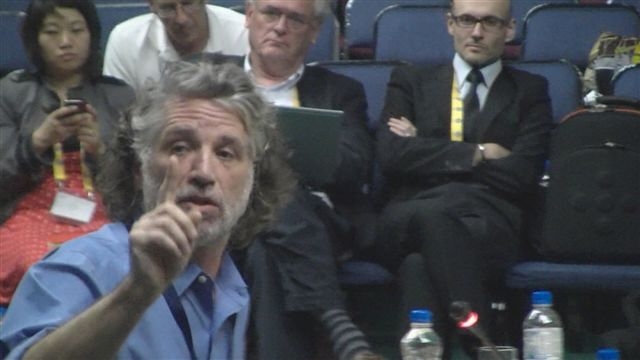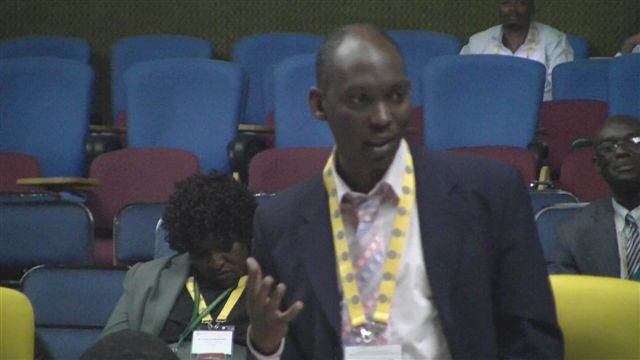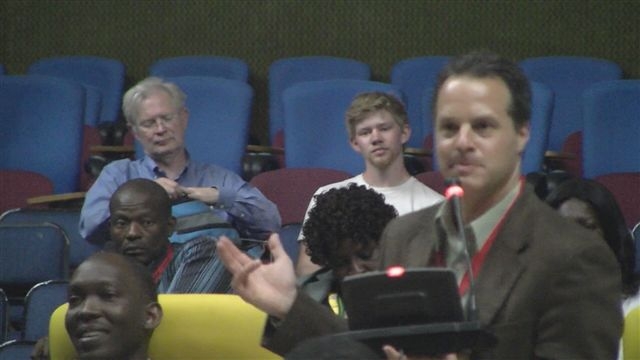A panel of four authorities on the subject of ICTs in Education took a position on this question at e-Learning Africa's highly anticipated closing debate on May 28th in Lusaka, Zambia. Unfortunately the motion statement in which this core question was embedded was long, containing a number of clauses and questions that obscured the kernel question the debate was designed to answer – is 1:1 computing an affordable model of investment in education for Africa? What started out as a gripping, entertaining and focused description of the pros and cons of investment in 1:1 computing in Education by each of the four panelists (for and against respectively), gradually transformed into a platform for participants’ soliloquys on their experiences of technology adoption in various environments.
It is an understandably contentious subject, inviting passionate and often biting contributions from the teachers, academics, researchers and education specialists exasperated by accounts of the misappropriation of educational funds, and unwise investments in technology that litter the African landscape. Nevertheless, a debate is an opportunity to get to the nub of an issue through the skillful de-layering of a subject facilitated by questions that challenge the panelists to convincingly defend their positions and persuade the audience to consider new perspectives. To this end the chairpersons could have facilitated this process more effectively by encouraging more questions that addressed the actual motion statement.
It is so seldom that we have an opportunity to get past what Alex Twinomugisha from GeSCI (opposing panelist) described as the language of 'arcane salesmanship' adopted by technology promoters, to the real questions of affordability and appropriateness. The opposing panelists Alex Twinomugisha and Anthony Bloome from USAID won the debate, arguing that 1:1 computing is not an affordable educational investment in African systems. They had the staggering costs in their arsenal of tools, costs that are difficult to overlook on a continent where teachers are often underpaid, inadequately trained and where there is often a lack of electricity to maintain lighting in schools, never mind a computer per child in every classroom.
But if the point was lost on some participants due to the stream of contributions made on fringe issues, Keith Andrew Bevan Harper from Hermit Crab South Africa tried to bring the debate back to solid ground when he urged the audience to question not whether investments in technology in education are well advised, but to question whether
informed investments are made in
appropriate technologies in
appropriate conditions. In that sense all panelists were on the winning side of the debate because they are moving the discourse into a domain of opportunities never thought possible before 1:1 technologies such as laptops, mobile phones and PDAs came within reach of people in the world’s poorest countries. Now there is no time for complacency and no room for accepting the status quo. There are opportunities to radically transform education systems both in Africa and around the world, so we should not question whether we
should invest in technology in education. Instead we must invest our time and energy in figuring out how to do it right!
Panelists: - Richard Niyonkuru, M&E Advisor to ICT Projects, MoE, Rwanda
- David Cavallo, OLPC, USA
- Alex Twinomugisha, GeSCI, Kenya
- Anthony Bloome, USAID, USA
Chairperson: - Harold Elletson, The New Security Foundation, UK
- Katherine W. Getao NEPAD e-Africa Commission, South Africa



